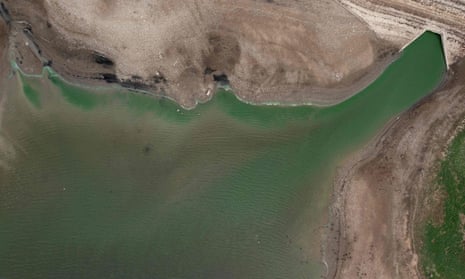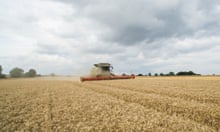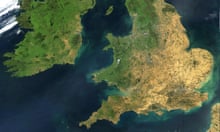England could be in drought beyond spring 2023, ministers have said, after record low rainfall has left the country short on water.
The news will be particularly problematic for farmers, who were hoping for a damp autumn and winter to refill reservoirs so they could plant and harvest crops into next year.
Though rainfall levels were average across most of the country in September, this was not enough to dampen the soil and refill reservoirs after a dry and scorching summer. Consistent above-average rainfall is needed throughout autumn and winter to bring England out of drought, and this is not currently likely.
Water companies may put in place drastic water saving measures, banning all non-critical use. This means ponds and swimming pools would be banned from being refilled, and non-residential buildings would not be able to be cleaned.
The National Drought Group (NDG), which is made up of government agencies as well as water companies and NGOs, is working on ways to ensure long-term resilience. This is because such periods of extreme dry weather are to become more and more likely because of the climate emergency.
The Environment Agency chief executive and NDG chair, Sir James Bevan, said: “Our lives, livelihoods and nature all depend on one thing – water. Climate change and population growth mean we need to take action now to ensure we have enough over the coming decades to manage everyday supplies, and more intense drought events.
“We have a plan to do that and delivering it will require all of us to work together – government, water companies, regulators, farmers and businesses, and each of us as individuals. The Environment Agency is determined to do its part.”
The latest forecast from the group indicates that there will not be sufficient rainfall to recharge aquifers and refill reservoirs this winter, so England will not exit drought.
after newsletter promotion
Millions of people have been under a hosepipe ban for months after a record hot and dry summer, with some parts of England recording their lowest levels of rainfall since records began.
It is likely these bans will become more severe, as the Environment Agency noted that the water companies were preparing to implement further phases of their drought plans, which means stricter measures.
The water minister, Trudy Harrison, said: “The record-breaking temperatures, unusually low rainfall and widespread drought the country has experienced this year are a reminder that we need to adapt to ensure our water supplies are resilient and secure in future.
“The work of the national drought group is ensuring that we can manage down the risk of continuing drought conditions, so that the impact is less severe for all of us.”
The latest hydrological outlook from the UK Centre for Ecology and Hydrology looks bleak, with river flows expected to be exceptionally low throughout October.










